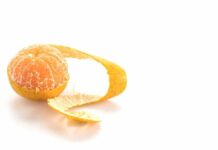Overview
Fibroids are abnormal growths in the uterus. They’re also called uterine fibroids, myomas, and leiomyomas.
Fibroids aren’t cancerous or life-threatening, but they can sometimes cause complications and health problems.
Fibroids form in and around the uterine walls. They’re made of muscle and other tissues. They may be as tiny as a seed or grow larger than a tennis ball. You may have multiple fibroids or just one.
Doctors don’t know exactly what causes fibroids. Having overweight or obesity increases your risk, as does having low levels of some types of nutrients.
Prevalence
Almost 80 percent of women have fibroids in their lifetime. This condition may also be genetic. You’re at higher risk if your mother or sister has fibroids.
Fibroids can cause symptoms and complications such as:
- pain
- heavy menstrual bleeding
- constipation
- anemia
- difficulty getting pregnant
- miscarriages
However, only 20 to 50 percent of women with fibroids have symptoms. In most cases, treatment isn’t needed. Your doctor may recommend waiting and watching to see if the fibroids go away on their own.
While foods can’t treat or prevent fibroids, your daily diet and lifestyle may play a role in reducing your risk. Diet can help balance hormones that may trigger these growths. Certain foods may also help ease fibroid symptoms.
Diet And Lifestyle Changes To Lower Risk
There are a number of changes you can make that might help reduce your risk for fibroids.
Follow A Mediterranean Diet
Add plenty of fresh and cooked green vegetables, fresh fruit, legumes, and fish to your plate. A Mediterranean diet is one way to do this. Research shows that eating these foods regularly may help lower your risk for fibroids. On the other hand, eating beef, ham, lamb, and other red meat may raise your risk.
Cut Back On Alcohol
Drinking any type of alcohol may increase your risk for fibroids. This can happen because alcohol raises the level of hormones needed for fibroids to grow. Alcohol may also trigger inflammation.
One study found that women who drank one or more beers a day increased their risk by more than 50 percent. Avoid or limit alcohol to help reduce your risk.
Balance Estrogen
Estrogen is a hormone important for healthy fertility in both women and men. However, too much estrogen can increase your risk for fibroids or make them worse.
Many treatments for fibroids work by lowering estrogen levels. Other ways to balance estrogen levels include:
Losing weight. Obesity and excess weight increase the risk for fibroids. Fat cells make more estrogen, so losing weight may help prevent or slow the growth of fibroids.
Avoiding hormone-disrupting chemicals. Natural and synthetic chemicals can throw off your endocrine balance, raising estrogen levels. These chemicals can leach into your body through skin and food. Avoid or limit coming into contact with chemicals found in:
- fertilizers
- pesticides
- plastics such as BPA
- nonstick coatings on cookware
- fire retardants
- dyes
- paints
- some personal care products
Lower Blood Pressure
Research shows that a high number of women with severe fibroids also have high blood pressure. More research is needed to find out if there’s a link.
Balancing blood pressure is vital for your overall health. Try these tips:
- Avoid added salt. Flavor food with herbs and other spices instead.
- Limit high-sodium processed and packaged foods.
- Check your blood pressure daily with a home monitor.
- Exercise regularly.
- Lose weight, especially around the waist.
- Avoid or limit alcohol.
- Increase potassium by eating a majority of plants at each meal.
- Quit smoking and avoid secondhand smoke.
- If you have high blood pressure, take medication as prescribed.
- See your doctor for regular checkups.
Get Enough Vitamin D
Vitamin D may help reduce your risk of fibroids by almost 32 percent. Your body makes this “sunshine vitamin” naturally when your skin’s exposed to sunlight. If you have darker skin or live in cooler climates, you’re more likely to be deficient.
Supplements can help raise your levels, along with foods such as:
- egg yolks
- fortified milk, cheese, and dairy products
- fortified cereals
- fortified orange juice
- fatty fish such as salmon, tuna, and mackerel
- cod liver oil
A Note About Smoking And Diet
Eating brightly colored fruits and vegetables is good for your general health. Consuming a variety of red, yellow, and orange foods will provide rich antioxidants. Dark greens are also nutrient dense and will provide healthful benefits. These nutrients may help protect you from disease, including some cancers.
However, a study found that beta carotene found in red, yellow and orange foods didn’t lower the risk for fibroids. In smokers, beta carotene may even increase risk. Further research is needed on why this might happen. In any case, smoking is harmful to your health and may increase your risk of fibroids.
Foods To Eat If You Have Fibroids
Diet alone can’t treat fibroids. However, a balanced diet may also help ease some fibroid symptoms and complications. Certain foods may help slow fibroid growth in some cases.
Fiber
Fiber-rich foods aid weight loss and balance hormones. They also help to keep blood sugar levels steady. For these reasons, fiber may help prevent and slow the growth of fibroids. Add these whole foods to your diet:
- cooked and raw vegetables
- cooked, raw, and dried fruit
- whole grain bread and pasta
- cruciferous vegetables
- oats
- lentils
- barley
- beans
Potassium
Potassium helps to counter the effects of salt to balance blood pressure. Add these potassium-rich foods to your daily diet:
- avocado
- bananas
- citrus
- cantaloupe
- collard greens
- dates
- lentils
- oat bran
- potatoes
- tomatoes
Dairy
Add dairy products such as yogurt and full-fat cheese to your diet. Dairy is rich in calcium, phosphorus, and magnesium. These minerals may help prevent fibroids and slow their growth. Fortified milk also contains vitamin D.
Green Tea
Green tea contains several antioxidants. A study found that one of these, epigallocatechin gallate, may help slow the growth of fibroids by bringing down inflammation and high estrogen levels. Green tea may also improve symptoms of heavy bleeding due to fibroids, such as low iron.
Foods To Avoid If You Have Fibroids
Sugar
Sugary foods and simple carbohydrates may trigger or worsen fibroids. These foods spike blood sugar levels. This causes your body to make too much insulin. Excess insulin can cause weight gain and affect fibroid growth.
Avoid refined carbs and added sugars such as:
- table sugar
- glucose
- dextrose
- maltose
- corn syrup
- high fructose corn syrup
- white bread, rice, pasta, and flour
- soda and sugary drinks
- fruit juice
- potato chips
- crackers
- packaged energy bars
Estrogen-Increasing Foods
Some foods contain natural ingredients that mimic the estrogen in the body, called phytoestrogens. Other foods have added hormones or trigger your body to make more estrogen.
Some of these foods may have protective effects when consumed in small to moderate amounts, but have negative effects when consumed in high amounts. You may need to limit or avoid foods such as:
- red meat from sources that include added hormones
- soy beans
- soy milk
- tofu
- flax seed
The Takeaway
Eating a balanced diet and maintaining a healthy weight is important for your overall health. You may not be able to prevent fibroids, no matter what precautions you take. See your doctor if you think you may be at risk or if you experience any changes in your health.
If you have fibroids, your doctor will determine the best type of treatment. Healthy diet and lifestyle changes are the first steps to treating fibroids and relieving symptoms.
Following a diet plan is critical even if you have surgery, drug therapy, or other treatment for fibroids.
Your doctor may also recommend natural remedies, alternative pain relief, stress management, and supplements to help ease symptoms. Talk with your doctor and dietitian about the best diet plan for you and other ways to prevent and reduce the effects of fibroids.
Sources:
- Al-Hendy A, et al. (2016). Can vitamin D reduce the risk of uterine fibroids? DOI:
10.2217/whe.14.24 - Aburto NJ, et al. (2013). Effect of increased potassium intake on cardiovascular risk factors and disease. DOI:
10.1136/bmj.f1378 - Baird DD, et al. (2013). Vitamin D and the risk of uterine fibroids. DOI:
10.1097/EDE.0b013e31828acca0 - Chiaffarino F, et al. (2017). Alcohol consumption and risk of uterine myoma: A systematic review and meta analysis. DOI:
10.1371/journal.pone.0188355 - Dalton-Brewer N. (2016). The role of complementary and alternative medicine for the management of fibroids and associated symptomatology. DOI:
10.1007/s13669-016-0156-0 - Haan YC, et al. (2015). Hypertension risk in Dutch women with symptomatic uterine fibroids. DOI:
10.1093/ajh/hpu183 - Handa Y, et al. (2009). Estrogen concentrations in beef and human hormone-dependent cancers. DOI:
10.1093/annonc/mdp381 - He Y, et al. (2013). Associations between uterine fibroids and lifestyles including diet, physical activity and stress. DOI:
10.6133/apjcn.2013.22.1.07 - Katz TA, et al. (2016). Endocrine disrupting chemicals and uterine fibroids. DOI:
10.1016/j.fertnstert.2016.08.023 - Moore AB, et al. (2007). Stimulatory and inhibitory effects of genistein on human uterine leiomyoma cell proliferation are influenced by the concentration. DOI:
10.1093/humrep/dem185 - Radin RG, et al. (2010). Dietary glycemic index and load in relation to risk of uterine leiomyomata. DOI:
10.3945/ajcn.2009.28698 - Roshdy E, et al. (2013). Treatment of symptomatic uterine fibroids with green tea extract. DOI:
10.2147/IJWH.S41021 - Terry KL, et al. (2008). Lycopene and other carotenoid intake in relation to risk of uterine leiomyomata. DOI:
10.1016/j.ajog.2007.05.033
Important Notice: This article was originally published at www.healthline.com by Noreen Iftikhar, MD where all credits are due. Medically reviewed by Natalie Olsen, R.D., L.D., ACSM EP-C
Disclaimer
The watching, interacting, and participation of any kind with anything on this page does not constitute or initiate a doctor-patient relationship with Dr. Farrah®. None of the statements here have been evaluated by the Food and Drug Administration (FDA). The products of Dr. Farrah® are not intended to diagnose, treat, cure, or prevent any disease. The information being provided should only be considered for education and entertainment purposes only. If you feel that anything you see or hear may be of value to you on this page or on any other medium of any kind associated with, showing, or quoting anything relating to Dr. Farrah® in any way at any time, you are encouraged to and agree to consult with a licensed healthcare professional in your area to discuss it. If you feel that you’re having a healthcare emergency, seek medical attention immediately. The views expressed here are simply either the views and opinions of Dr. Farrah® or others appearing and are protected under the first amendment.
Dr. Farrah® is a highly experienced Licensed Medical Doctor certified in evidence-based clinical nutrition, not some enthusiast, formulator, or medium promoting the wild and unrestrained use of nutrition products for health issues without clinical experience and scientific evidence of therapeutic benefit. Dr. Farrah® has personally and keenly studied everything she recommends, and more importantly, she’s closely observed the reactions and results in a clinical setting countless times over the course of her career involving the treatment of over 150,000 patients.
Dr. Farrah® promotes evidence-based natural approaches to health, which means integrating her individual scientific and clinical expertise with the best available external clinical evidence from systematic research. By individual clinical expertise, I refer to the proficiency and judgment that individual clinicians acquire through clinical experience and clinical practice.
Dr. Farrah® does not make any representation or warranties with respect to the accuracy, applicability, fitness, or completeness of any multimedia content provided. Dr. Farrah® does not warrant the performance, effectiveness, or applicability of any sites listed, linked, or referenced to, in, or by any multimedia content.
To be clear, the multimedia content is not intended to be a substitute for professional medical advice, diagnosis, or treatment. Always seek the advice of your physician or other qualified health providers with any questions you may have regarding a medical condition. Never disregard professional medical advice or delay in seeking it because of something you have read or seen in any website, video, image, or media of any kind. Dr. Farrah® hereby disclaims any and all liability to any party for any direct, indirect, implied, punitive, special, incidental, or other consequential damages arising directly or indirectly from any use of the content, which is provided as is, and without warranties.









